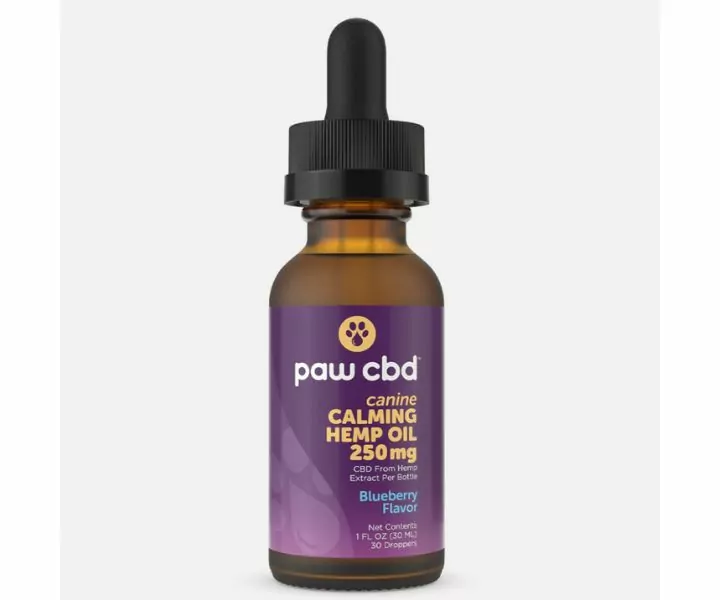Can I Give My Dog Trazodone?
Trazodone for dogs can be helpful in situations that cause anxiety or if your dog suffers from anxiety generally. Isn’t it every dog owner’s worst nightmare when their dog is in pain or scared? Pain can be managed with painkillers, but what about the fear and anxieties?
What Does Trazodone Do for Dogs?
If you want to know more about anti-anxiety meds for dogs, take a read below. Here you can also learn of possible side effects of Trazodone to look out for and much more!

When is Trazodone for Dogs Prescribed?
But first, what is Trazodone for dogs? A lot of canines suffer from separation anxiety in dogs (and other types). Sometimes it’s related to specific situations like during fireworks period go off or when they are going to the vet. Other times it’s more generalized anxiety.
For example like when the dog is home alone for any given length of time. Whichever one it is, it can be extremely uncomfortable for the dog. In the worst cases, Trazodone can be prescribed to manage anxiety and fear.
Is Trazodone for Dogs the Same As For Humans?
And…is Trazodone safe for dogs? Trazodone for humans is an antidepressant. But, clinical Trazodone studies in animals show that it has a good effect on dogs as well. Trazodone is a serotonin antagonist.
This means it keeps the serotonin in the brain’s synaptic space for longer. Serotonin is the “feel-good” neurotransmitter of the body. When the dog’s brain is missing serotonin it can cause increased anxiety.

Is Trazodone Dangerous for Dogs?
By keeping serotonin for longer in the synaptic space it gives the dog a sense of well-being. It can also help the dog become less aggressive, which sometimes can be an issue when they are scared. Increasing well-being and diminishing aggressiveness are both great steps towards minimizing anxiety.
Trazodone is often given in combination with other medications. As well as for behavioral training in dogs. Each dog is unique and the treatment, therefore, has to be tailored to each individual dog.
What Is the Right Trazodone Dosage for Dogs?
Tradozone gets administered as tablets. These need to be stored at room temperature and away from light. Most often it is given with food to minimize the risk of causing nausea.
So how much Trazodone for dogs is safe? The recommended dosage for dogs is:
– 1.7 – 19.5 mg/kg/day
Either given daily against general anxiety, or when needed for triggering situations. Most dogs experience anxiety relief within two hours of administration.
If you miss a dose, do not double the next dosage. Give the regular dosage next time and keep following the regime as instructed by your vet.

If Trazodone is given against specific stimuli. It is recommended to administer the medication before the trigger. Often up to two hours before, so the medication has ample time to take effect. The dosage is thereafter repeated every eight hours until the trigger stimuli have passed.
How Long Does It Take for Trazodone to Work in Dogs?
The time of onset and the effect will vary from dog to dog. It is thus important to always consult a veterinary professional before giving your dog any kind of medication.
Your vet will also be able to recommend alternatives and helpful additions to the treatment. Like exercises, medications, and other mechanisms to deal with anxiety.
How Long Does Trazodone Last for Dogs?

Trazodone typically lasts for about four to six hours in dogs. This duration may vary depending on the dog’s individual metabolism and response to the medication. It’s essential to follow your veterinarian’s recommended dosing schedule and not exceed the prescribed dosage to ensure its effectiveness and safety for your dog.
Can You Give A Puppy Trazodone?
Yes, you can give a puppy Trazodone, but it’s crucial to consult with a veterinarian first. Trazodone is a medication commonly prescribed to dogs for anxiety and behavioral issues. However, the dosage and suitability for a specific puppy depend on factors like age, size, and overall health.
Only a qualified veterinarian can provide the correct guidance, ensuring the safety and effectiveness of Trazodone for your puppy’s needs. Always prioritize professional advice and supervision when considering any medication for your pet.
Trazodone for Dogs – Side Effects
In recent studies, Trazodone was found to have minimal side effects in most dogs. Almost 80% of dogs experienced no side effects at all. But, it should never be given to a dog who is hypersensitive as it can cause allergic reactions.
But, as with all medication, some adverse effects are seen from time to time. Some side effects of Trazodone in dogs are :
- Canine lethargy
- Gastrointestinal symptoms like dog diarrhea and vomiting
- Changes in behavior
- Depression

One of the most serious potential side effects of Trazodone is serotonin syndrome in dogs. This is a syndrome that happens when brain levels of serotonin get too high. It is very rare in dogs, but can be fatal which is why it’s important to know the symptoms. Which are:
- Rapid animal heart rate
- Tremors/shivering and shaking in dogs
- Difficulty breathing
- Dilated pupils
If a dog is showing any of the above symptoms is important to seek emergency veterinary care. The medication Cyproheptadine reduces the concentration of serotonin in the brain. This is given to minimize the symptoms and manage the risks of serotonin syndrome.
Generally speaking though, Trazodone is a safe drug. It has the advantage over other anti-anxiety drugs to have fewer adverse effects. As well as a lower risk of causing seizures in dogs.

Are There any Drug Interactions you Should Beware of When it Comes to Trazodone for Dogs?
Trazodone interacts with quite a few different drugs. It is thus important to always consult your veterinary professional before administering Trazodone.
As already mentioned: The most dangerous side effect of Trazodone use, is serotonin syndrome. Extreme care should, therefore, be taken when it is given along with other serotonin-enhancing drugs. Examples of these are:
- Canine Fluoxetine
- Clomipramine
Care should also be taken when given along with MAO inhibitors and tramadol. This can increase the risk of serotonin syndrome as well. NSAIDs given in conjunction with Trazodone can also increase the risk of bleeding tendency.
It is important to be forthcoming with any information concerning your dog’s health. As well as any possible side effects your dog may be experiencing. This is to ensure the best possible outcome for you and your dog.

Trazodone Alternatives for Dogs
There are a few alternatives to Trazodone.
- CBD Oil for dogs: This is a natural alternative. This acts on the brain’s endocannabinoid system to ease anxiety.
- Behavioral modification training: One of the best alternatives to medication is training. Either do it yourself or contact a professional dog trainer. Teaching your dog to remain calm in stressful situations can be very hard work. But, it can also be a great long-term solution for your dog. Often Trazodone in combination with behavioral therapy can have a great effect.
- Other medication: Other types of anti-anxiety medication can be tried. Either alone or in combination with Trazodone. It is important to always consult your veterinary professional before combining medication.
Where to Buy Trazodone for Dogs (And Alternatives)
Trazodone

CBD Oil
Pet CBD Oil Calming Tincture for Dogs

Summary
Can dogs have Trazodone? Most certainly!
It is always horrible to see your beloved pet in discomfort or even fear. In cases where everything seemed to have been tried without success, Trazodone can provide much welcome relief for your dog’s anxieties.
With the help of your vet, some training at home, and love and care. Hopefully, your dog can live a long, happy, and fear-free life.
